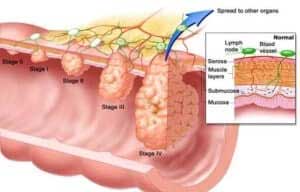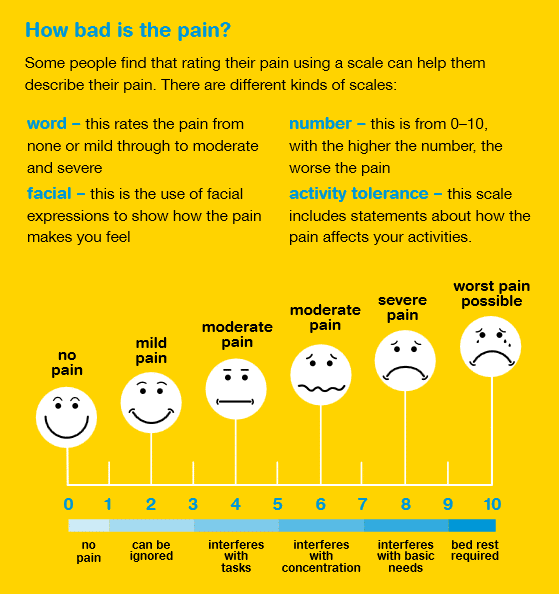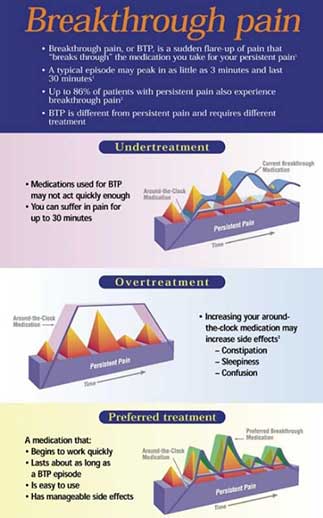Cancer Pain
What is it?
Cancer pain is any discomfort that arises from cancer and its treatments. Many cancers can cause pain just by growing in certain areas and pressing on organs or nerves. For instance, stomach cancer may cause abdominal pain merely from the growing mass. However, cancer pain does not stop at that diagnosis. Often, the treatments for cancer, whether palliative or curative, can cause pain to the patient, as well.
For instance, many women who have mastectomies following breast cancer can experience pain in the missing breast, known as phantom pain or injury to nerves during the surgery can lead to “post-mastectomy” pain. Chemotherapy is also quite destructive to healthy tissue, and it can injure peripheral nerves, leading to nerve pain. In addition, radiation can cause pain by subjecting the patient to burns on the skin, mouth sores, and other side effects. For this reason, cancer pain is a broad category, and it requires a comprehensive set of treatments to manage.
Who gets it?
Cancer pain can occur in any patient who has the misfortune of finding a cancerous mass. Some cancers do not cause pain, and they may be undetectable without the use of complex radiologic imaging. Breast cancer is a very good example of this because a small to moderate mass generally does not cause pain. Where the cancer is located predicates the quality and quantity of pain that it will cause. Bone cancer, some brain cancers, and cancers of the abdomen are often painful cancers, and have various risk factors associated with them.
Treatment related cancer pain is unfortunately a common side effect with both palliative and curative procedures. Any cancer that involves the removal of peripheral tissue can result in pain, and even surgeries to remove masses in central locations, such as the brain, chest, and abdomen, can lead to nerve damage and internal, visceral pain. Most cancer patients who undergo chemotherapy and radiation find that they encounter some pain. Therefore, cancer patients in general are at high risk for chronic pain, and it is an important part of managing the condition.

What kind of pain results?
Many different types of pain can result from cancer and its treatments. When the cancer is new, the pain be felt as deep, visceral pain in the chest or abdomen. Brain tumors can occasionally cause headaches. Bone cancer, such as multiple myeloma, may result in bone pain and fractures. When the cancer is removed, nerve pain is often the result, including phantom limb pain. This is due to the destruction of nerves which occurs in the process of removing the mass. These nerves do not grow back, and this pain can feel like numbness, tingling, weakness, and pain in the area where the growth was removed.
Pain that results from treatments can be categorized into a few types. First, nerve pain is common from chemotherapy, because the medications are very powerful and often toxic to the healthy tissue of the body. Nerve destruction can occur as a result of chemotherapy and once they are damaged, they can cause continual pain. Pain can also result from the destruction of mucus membrane tissues due to chemotherapy or radiationtherapy. This tissue is located in the mouth, nose, and stomach, and all cavities open to the environment. The destruction of this tissue can lead to painful sores and ulcers that don’t heal unless the treatment is discontinued.
Treatment of Cancer Pain
The most important referral for cancer patients is the oncologist. This is the doctor that will assess for the presence of cancer, order diagnostic tests, make the definitive diagnosis, and determine a treatment course. Usually, a treatment course will encompass referral to a surgeon to remove the mass. The type of cancer usually determines the type of surgeon that is needed, and both the pain management physician and the oncologist can work closely together to find the best combination of treatments for the benefit of the patient.
Pain management doctors can work with your oncologist to help control cancer pain through a combination of medications and modalities. Opioid medications are an important treatment for advanced cancer pain. Non-narcotic analgesics can also be helpful adjuncts in reducing pain and suffering. When medications are not enough, nerve blocks with steroids may decrease inflammation and reduce nerve related. Implantable devices that interfere with the transmission of pain signals at the level of the spinal cord are another way a pain management doctor can control cancer discomfort. Finally, the use of alternative therapies, such as meditation, acupuncture, and biofeedback, are treatments worth trying to relieve your pain. Referral for psychological support can help you cope with the sadness and anxiety that comes from fighting this disease.



